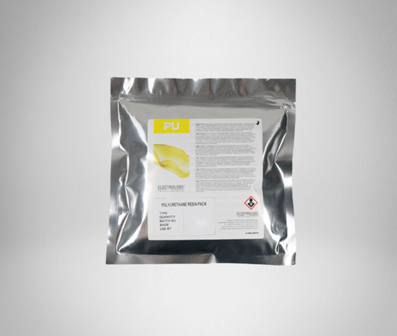
Smart Cities are rapidly evolving and sensor technology plays a vast role in the new IoT revolution that’s unfolding before us. Electrolube, the global manufacturer of electro-chemicals, has collaborated with a customer on a new car park sensor application with great success. In this particular application, sensor technology is used to direct drivers to available parking spots, highlighting empty spaces on maps and offering directions to them. Ultimately, the smart car park will help reduce pollution by eliminating the endless circling of the area by drivers looking for an empty parking space, which we can all identify with, and should create happier drivers too! Electrolube’s challenge was to provide a protection solution for a smart car park, where protection was needed to pot domed shaped sensors within a car park floor. The sensors not only had to withstand cars driving over them and be resistant to temperature extremes and water ingress, but also allow effective RF communication, whereby the signal can travel through the sensor as well as the resin.

The customer initially approached Electrolube following issues due to the unit’s material not being tough enough to withstand the impact of cars driving over it. Additionally, the surface energy of the housing material was too low to allow a good wetting of the resin and subsequently evaded good adhesion. This caused the unit material to bend and, despite a reasonable adhesion of the resin, they found delamination and water ingress inside the unit. The desired resin needed to be low viscosity to fill all gaps in the small unit, show good adhesion to the material of the unit and provide protection at low temperatures during the winter and high temperatures during the summer.
Consequently, the unit’s design, hardness and material for the housing was changed. Electrolube provided the UR5118 polyurethane resin to avoid RF interference and provide a dielectric constant of between 3-4 @50Hz. The UR5118 has a viscosity of 2300@ 23°C and 860@ 60°C ensuring sufficient flow in small gaps. It has a wide temperature range -60 to +125 °C and a low exotherm (<35°C). With a shore hardness of A80, the UR5118 will be gentle to more delicate components whilst providing a good impact resistance. The reformed unit was tested with the new UR5118 resin and passed all tests.
Electrolube’s UR5118 resin is quickly becoming a high-demand resin for IoT applications, due to its proven capability of protecting RF transmitters, sensors and circuitry from harsh environments, vibration, temperature extremes and water ingress. As a brand, Electrolube thrives on finding solutions where others don’t quite deliver. The IoT environment is ever increasing and the challenge for any brand is to hold a strong position within a vast market but primarily to safeguard the reliability and performance of interactive, connected devices.
With a presence in 60 countries, Electrolube is an established manufacturer of specialist chemical products supplying the world’s leading manufacturers of electronics, automotive, industrial and domestic devices. All product ranges are manufactured at the company’s BS EN ISO 9001, ISO 140001, “IATF 16949:2016, OHASA 18001 and AS/EN 9100 Series accredited factories in the UK, China and India.
For further information, http://www.electrolube.com.






